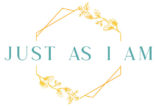I have been meaning to do this post for months but due to one thing or the other, I simply did not get round to it. As another month rapidly draws to a close, I know I cannot allow this to be delayed and deferred further. It’s a simple post, really…. As part of my coaching training programme, I had to pen down my thoughts on this transformational book I read (The Gift of Being Yourself by David G. Benner) and knew immediately it was worth sharing. I highly recommend this book to everyone. It provides much food for thought.
There is so much in what I share below, I would love to engage with others on the concepts. Any suggestions on how this can best be done is welcome! 😊
Enjoy!
Musings on The Gift of Being Yourself by David G. Benner
The Definition of Identity
One of the best things to arise from me embarking on the Bethel Coaching certification journey has been the deeply impactful books I have read as part of the courses. My first encounter with The Gift of Being Yourself by David G. Benner was whilst preparing to teach on the topic of identity in the Pursuing Wholeness programme (now also an e-course) mid last year. I did a Google search for a definition of the word “identity” and came across one that truly resonated with me: Identity is who we experience ourselves to be — the I each of us carries within. Little did I know that I would be reading the book from which it came a few weeks later.
Knowing God, Knowing Myself
The most transformative concept I took from the book was that in knowing God more, I know myself better, and in knowing myself better I know God more. In other words, I cannot truly know myself outside of God and I cannot truly know God outside myself. The knowledge of God and the knowledge of myself are inextricably linked.
Furthermore, for this knowledge of God and self to be transformational, it must be experiential; personal and not theoretical. A matter of the heart and not the head. This knowledge of God must transition from knowing about Him to knowing Him, for it to bear real fruit in my life.
As God is love personified, knowing Him not only means knowing His love, but it also demands that I experientially receive this love.
Equally, knowing myself means accepting myself for who I am, just as the Father does. As I experience myself in the good, the bad and the ugly, I am forced to run to the Father and the fullness of His love.
The True Self versus the False Self
Another powerful concept was that of the true self versus the false self. I learnt that the true self is what we receive from God. Everything else is of our own making and therefore an illusion. This begs the question, “How much of who I experience myself to be is an illusion?” I can only begin to answer this question as I take time to know and embrace the self that is known by God.
The anchor for my sense of identity needs to be the fact that God knows and accepts me just as I am. True identity is agreeing and aligning with what God says about me – who I am, what I have, what I can do, etc. In this social media era of self-aggrandisement, appearances, and comparison, it is reassuring to be reminded that my sense of self-worth must be derived not from what others think about me or even what I think about myself. It must come from the infallible truth of God’s written and revealed words concerning me.
It must come from the life-long process of knowing, receiving, and trusting God’s unconditional, unlimited, and unimaginably extravagant love for me.

